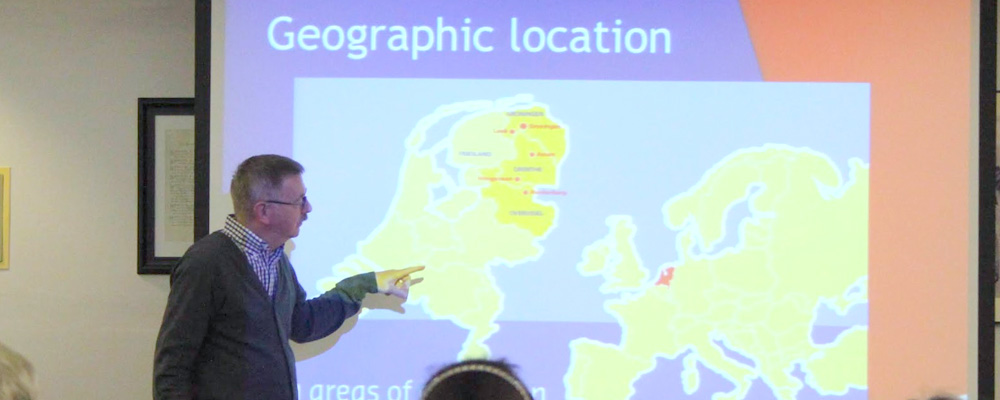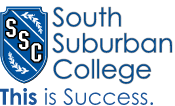
As geography is the study of our earth, the courses offered in this program provide students with a general understanding of all the global realms and their regions. Emphasis is on physical, economic and cultural geography. Currently the program offers two courses, GEO 103 (Geography of the Developing World) and GEO 104 (Geography of the Emerging World). The regions/realms of the course offerings are segregated based on economic geography. GEO 103 highlights countries such as the United States, Japan and Australia who are well developed and GEO 104 focuses on underdeveloped areas. Students learn ways of preservation of the developed countries and identify means of improvement for the areas still under metamorphosis. Acceptance and understanding of all global cultures is stressed.
Mission
The Geography Program at South Suburban College seeks to expand student understanding of global physical and cultural patterns, along with the implications of change and cultural diversity. Through two courses in developed and developing countries, students will be introduced to contemporary issues and study them from a geographic prospective.
Student Learning Outcomes (SLOs)
Students will be able to use written text, speech, maps and graphics to identify and describe physical, economic and cultural themes of every region on earth. Students are exposed to cultural diversity of the various regions and encouraged to accept the differences other cultures offer.
Recommended AA Transfer Curriculum for Geography
This curriculum is only a suggested transfer program and might not be appropriate for every student. Some four-year institutions accept more than 62 credit hours in transfer to fulfill requirements in geography. Consult the Transfer Center for help in selecting courses appropriate for the program at the college or university where you plan to transfer.
Faculty are available during scheduled office hours to advise students about their program and career opportunities. Peruse some of the offerings in the Department of Social and Behavioral Sciences.
Overview for College Success
Overview for College Success (OCS 121) is a course designed to assist students in the navigation of becoming successful in college and life. Major topics include setting academic, career and personal goals; effective communication strategies; study skills; critical thinking; self-discovery; and learning styles. In addition, this course delves into topics such as stress management, diversity and other well-being topics. Students will develop educational and career plans, learn to utilize college resources and receive extensive help in course planning. OCS 121 credit is not calculated in the course minimum credit totals listed in this section.
Students must take OCS 121 if they meet one or more of the following:
- First time degree seeking students
- Transfer student with less than 12 credit hours and no evidence of similar course on transcript
- Registering for 6 or more credits
- Test into 2 or more developmental classes
- Currently does not have OCS credit or registered for OCS
Minimum General Education (46-47)
This is only a suggested transfer program and might not be appropriate for every student. Some four-year institutions accept more than 62 credits in transfer to complete requirements in English. Consult the College & Career Success Center for help in selecting courses appropriate for the program at the college or university where you plan to transfer.
| Overview for College Success | CREDITS | |
|---|---|---|
| OCS 121 | Overview for College Success | 1 |
| Communications (9) | ||
|---|---|---|
| ENG 101 | Composition and Rhetoric | 3 |
| ENG 102 | Composition and Research | 3 |
| SPE 108 | Oral Communication | 3 |
| Humanities and Fine Arts (9) | ||
| GROUP II | Humanities Electives Students earning an Associate degree must meet the requirement for coursework on improving human relations as defined in Public Act 87-581. | 9 |
| Social and Behavioral Science (9) | ||
| Students earning an Associate degree must meet the requirement for coursework on improving human relations as defined in Public Act 87-581. | ||
| PSC 101 | American National Government | 3 |
| HIS 109 | Europe to the 19th Century | 3 |
| Mathematics (6-7) | ||
MTH 115 MTH 161 | General Education Mathematics OR Finite Mathematics | 3 |
| MTH 126 | Fundamentals of Statistics | 3 |
| Physical and Life Science (11) | ||
| BIO 101 | Concepts of Biology | 3 |
| GLG 101 | Introduction to Geology | 3 |
| AST 101 | Introduction to Astronomy | 4 |
Area of Concentration/Electives (18-20)
The selected electives listed above may satisfy the additional Math and Physical or Life Science courses required for the AS.
| GEO 103 | Geography of the Developed World | 3 |
| GEO 104 | Geography of the Emerging World | 3 |
| HIS 110 | History of Modern Europe (19th and 20th Centuries) | 3 |
| HIS 203 | Early American History | 3 |
| ANT 101 | Introduction to Cultural Anthropology | 3 |
| ECO 201 | Principles in Economics, Macro | 3 |
| SUGGESTED ELECTIVES: | ||
|---|---|---|
| BIO 102 | Introductory Biology | 3 |
| BIO 103 | Environmental Biology | 3 |
| BIO 105 | General Biology I | 3 |
| CHM 111 | Introductory Chemistry I | 3 |
| ECO 202 | Principles of Economics, Micro | 3 |
| PSY 101 | Introduction to Psychology | 3 |
| SOC 102 | Introduction to Sociology | 3 |
| Minimum for AS Degree | 62-65 | |
|---|---|---|
